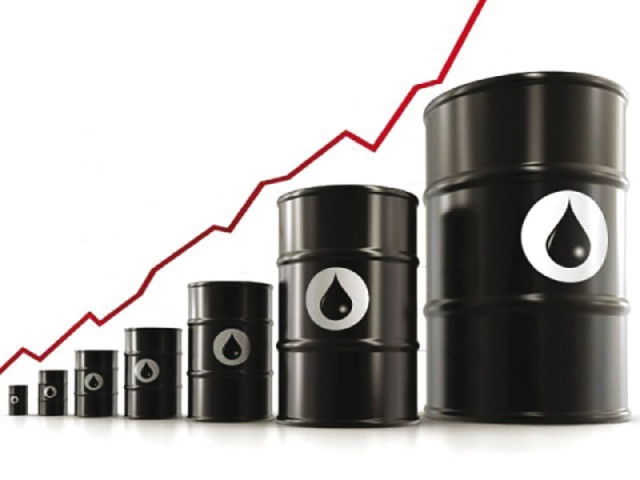Global turmoil: Experts voice caution as Iraq tension continues
International oil price likely to fuel inflation in Pakistan.

Pakistan faces the risk of experiencing higher inflation and a drain on its foreign exchange reserves if the international oil price fuelled by the deadly insurgency in Iraq continues to go up, industry experts said on Monday.
Over the past month, price of Arab Light Crude – a benchmark used in Pakistan – fluctuated between $106.02 per barrel and $112.98 per barrel following renewed tensions in Iraq and other parts of Middle East, a brokerage house report said.
“A rough estimate suggests that $1 per barrel change in international oil price will have an absolute import bill impact of around 0.6% or $90 million,” wrote Irfan Saeed, analyst at Invest Capital.

“So an increase in oil prices will fuel our import bill and amplify inflation in the country.”
Pakistan is a net importer of oil with annual imports of around 13.5 million tons, which make up for one third of its total import bill or roughly $14 billion.
The assault of the Islamic State in Iraq and the Syria (ISIS) on the northern areas of Iraq and attack on a major oil refinery of the region in recent past caused oil prices to spike in the international market.
“Although, absolute majority of Iraqi oil to international market comes from southern region which is safe so far but any move of ISIS toward this region may create serious supply issues and hence impact oil prices,” Saeed said.
Iraq is the second largest exporter in the Organisation of Petroleum Exporting Countries (OPEC) and contributes about 3.5% in world’s oil production.
The report also noted that US Energy Information Administration (EIA) expects OPEC crude oil production to fall by 0.1 million barrels per day (bbl/day) in 2014 and by an additional 0.1 million bbl/d next year from 29.9 million bbl/d in 2013.
It said expected global consumption is set to grow by 1.3 million bbl/d in 2014 and 2015 to 94 million bbl/d.
“China is the leading contributor to the anticipated global consumption growth, with consumption increasing by 400,000 bbl/d in 2014 and 430,000 bbl/d in 2015, while the US consumption is expected to inch up by a meagre 50,000 bbl/d in each year respectively.” The report says oil might touch $115 per barrel sometime in the near future on the back of geopolitical issues in the Middle East and expected demand.
Pakistan’s balance of payment has worsened since fiscal 2003-04 mainly because of increase in oil import bill. High oil price also compound the retail price of edibles.
But for the insiders of the industry the most devastating impact is felt when power tariff has to be increased as furnace oil rises in tandem with international crude.
Published in The Express Tribune, July 8th, 2014.
Like Business on Facebook, follow @TribuneBiz on Twitter to stay informed and join in the conversation.



















COMMENTS
Comments are moderated and generally will be posted if they are on-topic and not abusive.
For more information, please see our Comments FAQ